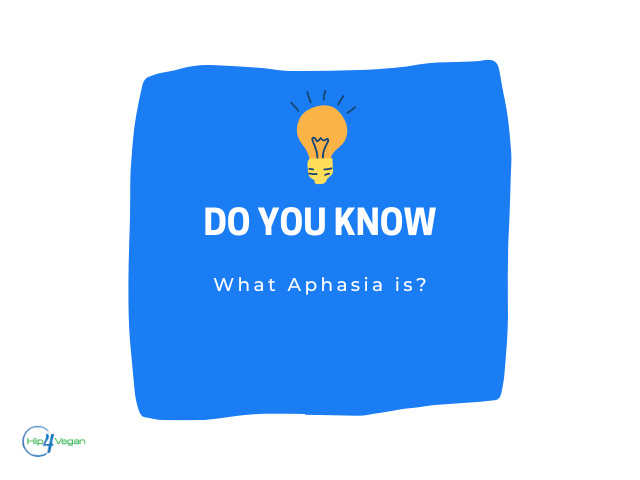Recently, many of you may have heard the term “Aphasia” as it was announced earlier in the year that Bruce Willis suffers from this medical condition. Two million people in the U.S. have aphasia and most people have never heard of it. I have first-hand experience with this condition because my husband suffered an Ischemic Stroke in May 2020. The aftermath of a stroke manifests many ways, from physical and mobility to communication issues.
So, what is Aphasia? I turned to the National Aphasia Association for an easy-to-understand definition. In a nutshell, Aphasia is an impairment of the language, affecting production or comprehension of speech and the ability to read or write. Aphasia is always due to injury to the brain-most commonly from a stroke, particularly in older individuals. But brain injuries resulting from aphasia may also arise from head trauma, from brain tumors, or from infections. Check out their website for more information:
Aphasia Definitions – National Aphasia Association
Stroke is the number one cause for aphasia, and 25% – 40% of stroke survivors develop aphasia. Just as hearts can experience a “heart attack,” brains can experience a “brain attack” when problems with blood flow to a section of the brain occurs. Bleeding in the left side of the brain can cause aphasia as the blood affects language centers in the brain. Luckily, the brain can sometimes form new channels of communication after sustaining damage in a section, and speech-language therapy can help patients regain some communication skills.
So, what caused my husband’s stroke? Unfortunately, we still don’t have a concrete answer for the exact cause. He was treated by a neurologist and a cardiologist in the hospital. The neurologist concluded that it was caused by his diabetes and the cardiologist concluded that it could have been caused by Atrial Fibrillation, or AFIB so the cardiologist implanted a “loop” underneath his skin over his heart so that they could continuously monitor his heart vitals.
The stoke left my husband with speaking, reading and memory issues. He was in sales as a manager for most of his career, so you can imagine what it would be like to lose the ability to effectively communicate. He no longer works, and it was a huge adjustment for him! It was also a big learning curve for me as I had to learn to discern what he was trying to communicate. He says left but means right, big and means small. He says the opposite of what he means. This can get very confusing… He has trouble recalling and pronouncing words. When writing an email or a text message, a few sentences can take a half an hour or more and his words and sentences come out jumbled and I end up having to proofread and rewrite for him.
He is a little gun-shy, so I do most of the talking when we are at a restaurant or a drive-thru. He has an “invisible” disability. You don’t know that he has a problem until he starts to talk or write, unlike an amputee or a person in a wheelchair, etc. Aphasia affects language, not intellect.
How does this relate to a vegan or plant-based diet? My husband decided to make the switch to a plant-based diet a few months after his stroke. He cut out all animal products and within a few months his A1C dropped from close to 10 to 6.7. The A1C blood test measures blood sugar level over the previous three months. For most adults living with diabetes, an A1C level of less than 7% is a common treatment target.
If you are interested in trying a plant-based diet for your health, the animals or the environment, start out slowly. Switch out your meals once or twice a week and slowly transition to more plant-based meals every week. After being a Vegan for seven years most of my food cravings have disappeared. Thank goodness, as cheese was the hardest for me!
On a closing note, please remember you never know what someone is going through, please be kind!

